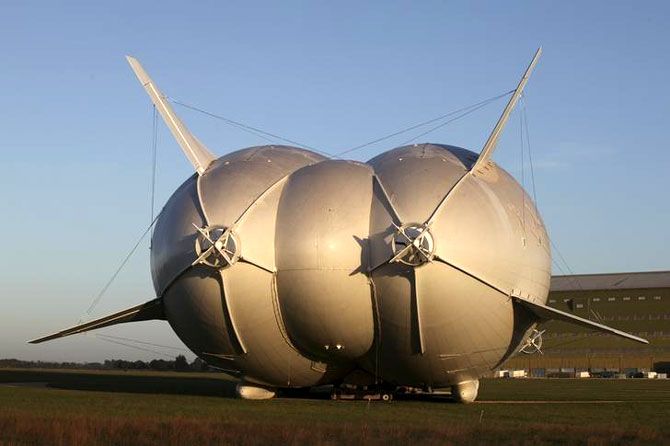Airlander 10, the 92-metre-long part plane – part helicopter, part airship - was damaged after reportedly hitting a telegraph pole

The world's largest aircraft crashed, on Wednesday, in eastern England during its second test flight since being revamped in the United Kingdom.
Airlander 10, the 92-metre-long part plane – part helicopter, part airship - was damaged after reportedly hitting a telegraph pole at its base at Cardington airfield in Bedfordshire.
"The flight went really well and the only issue was when it landed," said a spokesperson for Hybrid Air Vehicles (HAV), the firm behind the USD 33-million aircraft.

"We're debriefing following the second test flight this morning. All crew are safe and well and there are no injuries," an HAV statement on Facebook said.
The Airlander, christened Martha Gwyn, was first developed for the US government as a long-endurance surveillance aircraft, but the British firm launched a campaign to return the craft to the skies after it fell foul of defence cutbacks.
It is nearly 15 metres longer than the biggest passenger jets and uses helium to become airborne, travelling at speeds of up to 92mph, the 'Guardian' reported.

The Airlander successfully completed its first test flight without incident on August 17.
It performed one lap of the airfield before landing about half an hour later.
HAV claims once it clears all tests the aircraft could be used for a variety of functions such as surveillance, communications, delivering aid and even passenger travel.

The company hopes to be building 10 Airlanders a year by 2021 and says the huge aircraft will be able to stay airborne for about five days during manned flights.
It is also hoped an Airlander 50 will eventually be developed, which will be able to transport 50 tonnes of freight.
Photographs: Darren Staples/Reuters and Gareth Bumstead/Reuters












 © 2025
© 2025